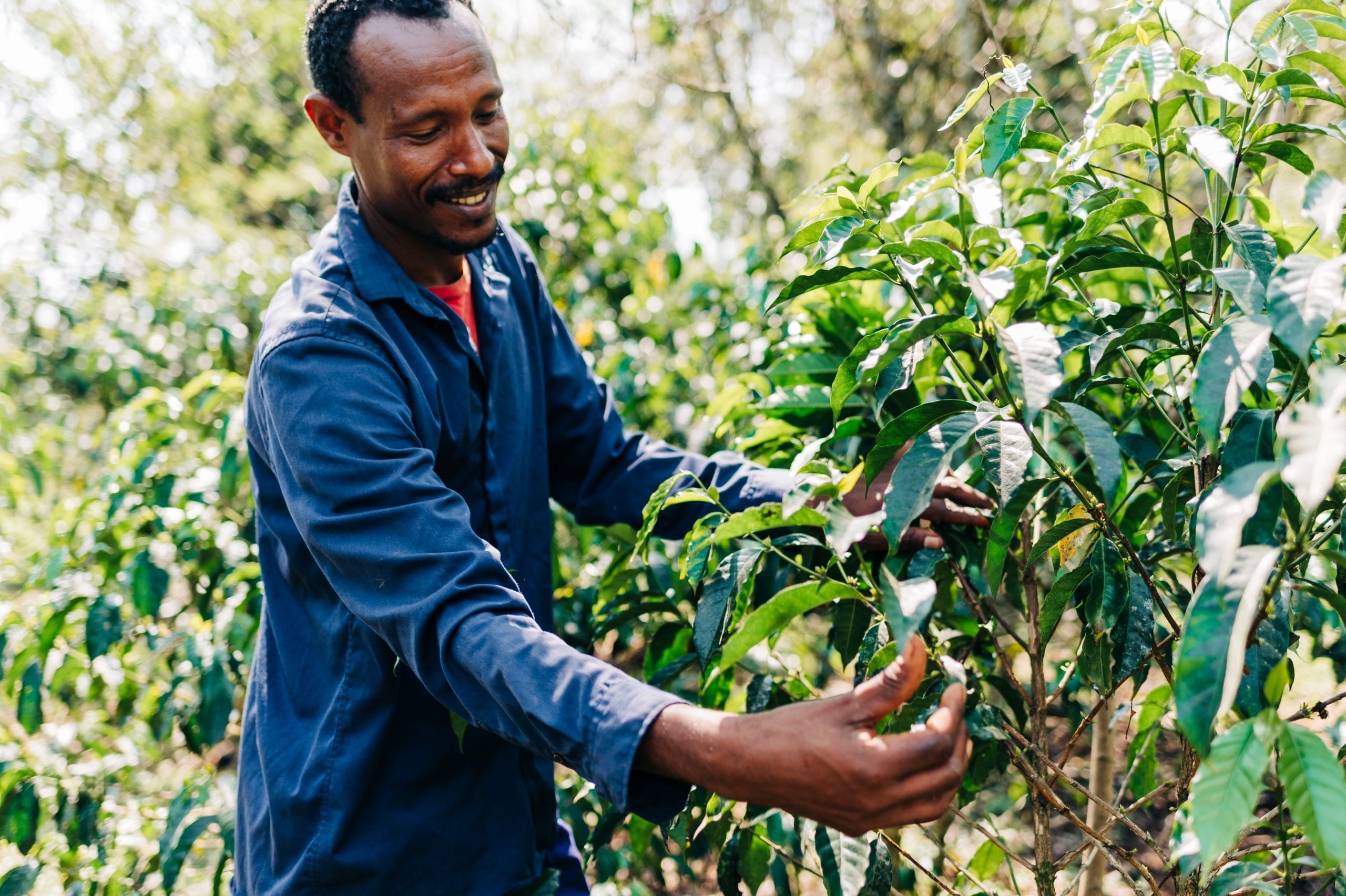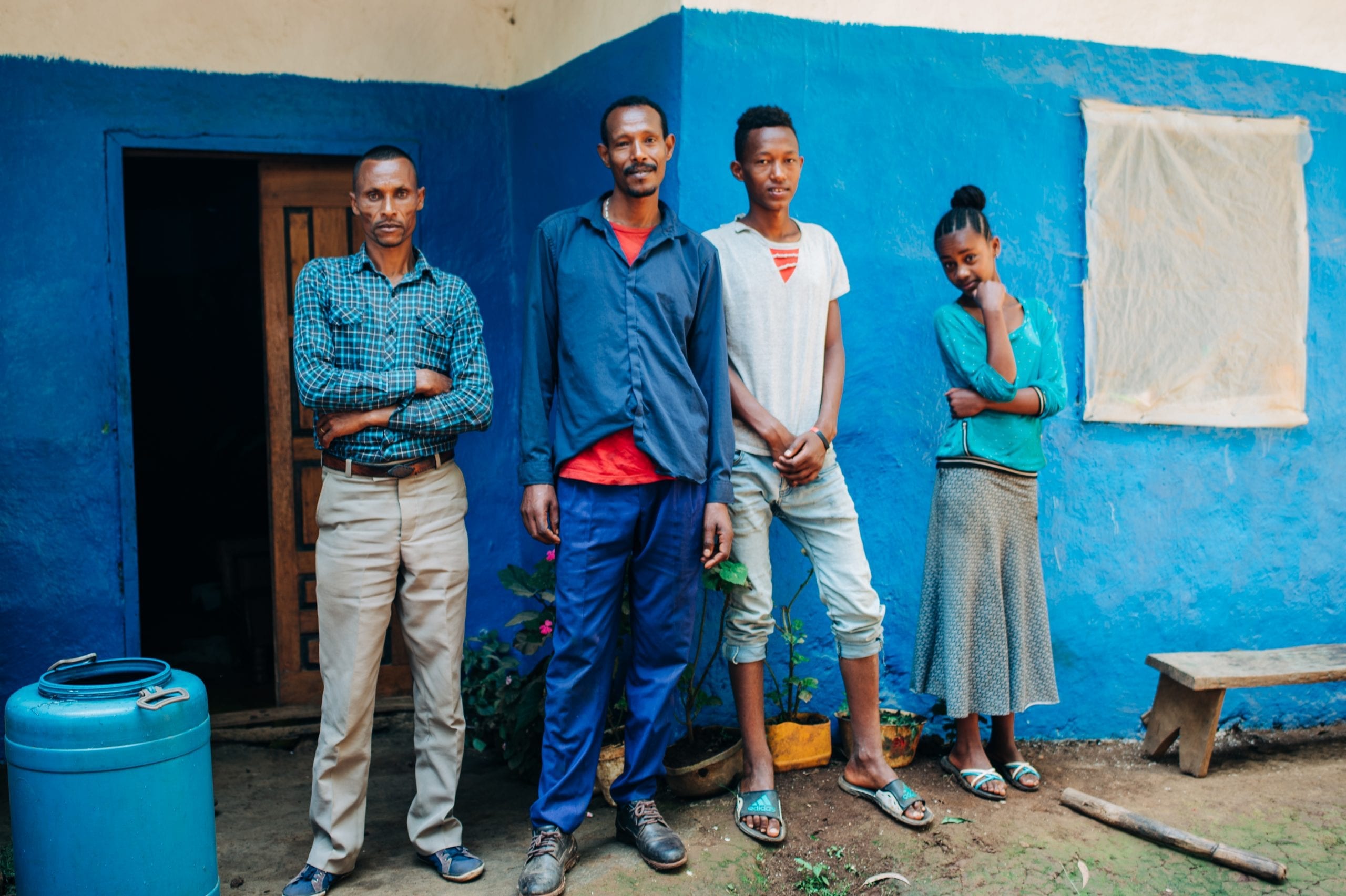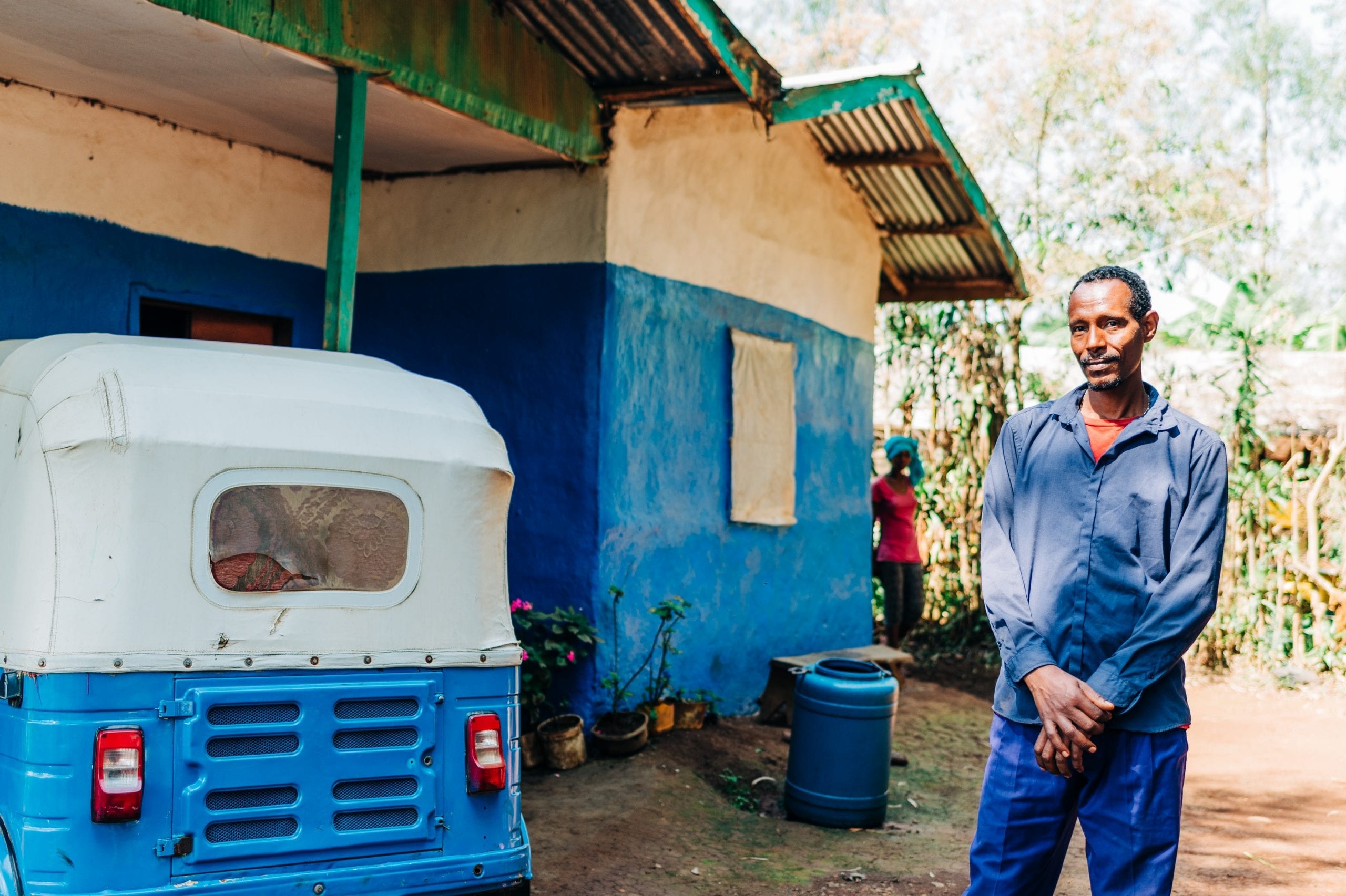10 Years On, Coffee Is Bringing Better Food and a Better Life in Ethiopia
When Adugna Feye first decided to start growing coffee in 2010, he was simply looking for a way to feed his family. After participating in a TechnoServe coffee program, he increased his income 15-fold, allowing him to not only comfortably feed his family, but invest in his children’s education, his farm, and the future.

For Adugna Feye, the decision to start growing coffee 10 years ago was a no-brainer. At the time, he was growing maize, sorghum, and teff on his small piece of land in the highlands of western Ethiopia. “During that time, I couldn’t even afford to feed my family,” he recalls quietly, reflecting on this difficult period of his life.
Many people in this area grow staple crops, but earn low prices that make it difficult for them to support the needs of their families. In many cases, increasing income from coffee can be a powerful mechanism to improve food security. A survey of farmers in western Ethiopia found that nearly 87% of families supplemented their food supply by using their coffee income to purchase additional maize. The survey also found that 94% of respondents frequently used coffee income to purchase items like seeds and fertilizer to grow maize themselves.
New Opportunities in Coffee
In 2010, Adugna joined a TechnoServe program that was helping coffee farmers in his community improve their coffee quality and yields. “I automatically shifted to coffee when I saw how [my neighbors] improved their lives,” Adugna explains. But learning to grow coffee for the first time was difficult. It took almost two years for him to get the coffee farm fully up and running. “At first I was frustrated,” he admits. “I wondered how I could change my life.”

Western Ethiopia is well-suited for coffee production, but farmers here often produced poor quality coffee and earned low prices for their harvests, making it difficult for them to escape poverty and provide a better life for themselves and their families. In 2008, TechnoServe partnered with the Bill and Melinda Gates Foundation to launch the Coffee Initiative. The program taught coffee farmers how to improve the quality and quantity of their coffee and helped coffee cooperatives establish new wet mills and improve the operations of existing ones. These wet mills process coffee cherries into high-quality coffee beans, which can be profitably sold to specialty coffee markets, meaning more income for coffee farmers.
Through the training, Adugna learned important agronomic practices such as composting, which helps coffee farmers improve soil quality, leading to healthier, more productive coffee trees. “The most important thing I saw from the training was how to plant the coffee seedling, how deep to dig the hole, and how to manage the coffee farm,” Adugna shares. Although almost 10 years have passed since he first participated in the program, he is still using many of the techniques he learned from his agronomy advisor. “Nowadays, I can raise the [coffee] seedling from the seed,” he explains. “This is how I still use the training.” Between 2008 and 2015, the Coffee Initiative helped 160,524 coffee farmers in Ethiopia increase their incomes by an average of 21%.

A Different Life
Sitting on a small wooden bench in Adugna’s front yard, it is clear that his life looks different now. A colorful blue bajaj — a small three-wheeled vehicle — is parked proudly in front of a sturdily constructed bright blue house. The faint sound of bees buzzing around provides ambient noise and mixes with the sound of children laughing in the background.
Now I change my clothes freely, but before I wore the same clothes for four years. That was the challenge.”
— Adugna Feye
Using the income from his coffee farm, Adugna has been able to build a new house, send his kids to school, and purchase a vehicle. “Before this, I had a hut house made out of grass,” he says, gesturing in the general direction of where his new house now stands. His four children are all attending school — an opportunity Adugna didn’t have after 5th grade. He also purchased the bajaj, which eliminates the need to walk long distances to school and markets.
With the leftover income from his coffee, he is investing in new businesses, including purchasing 15 modern beehives. He then sells the honey to local traders for additional income. When asked about how his life has changed over the years, his answers are both heartfelt and straightforward. “Now I change my clothes freely, but before I wore the same clothes for four years. That was the challenge.” Adugna is optimistic about his future and the future of his children. He plans to expand his coffee farm, continue to support his children through school, and eventually has dreams of buying a house in Jimma, the largest city nearby.




